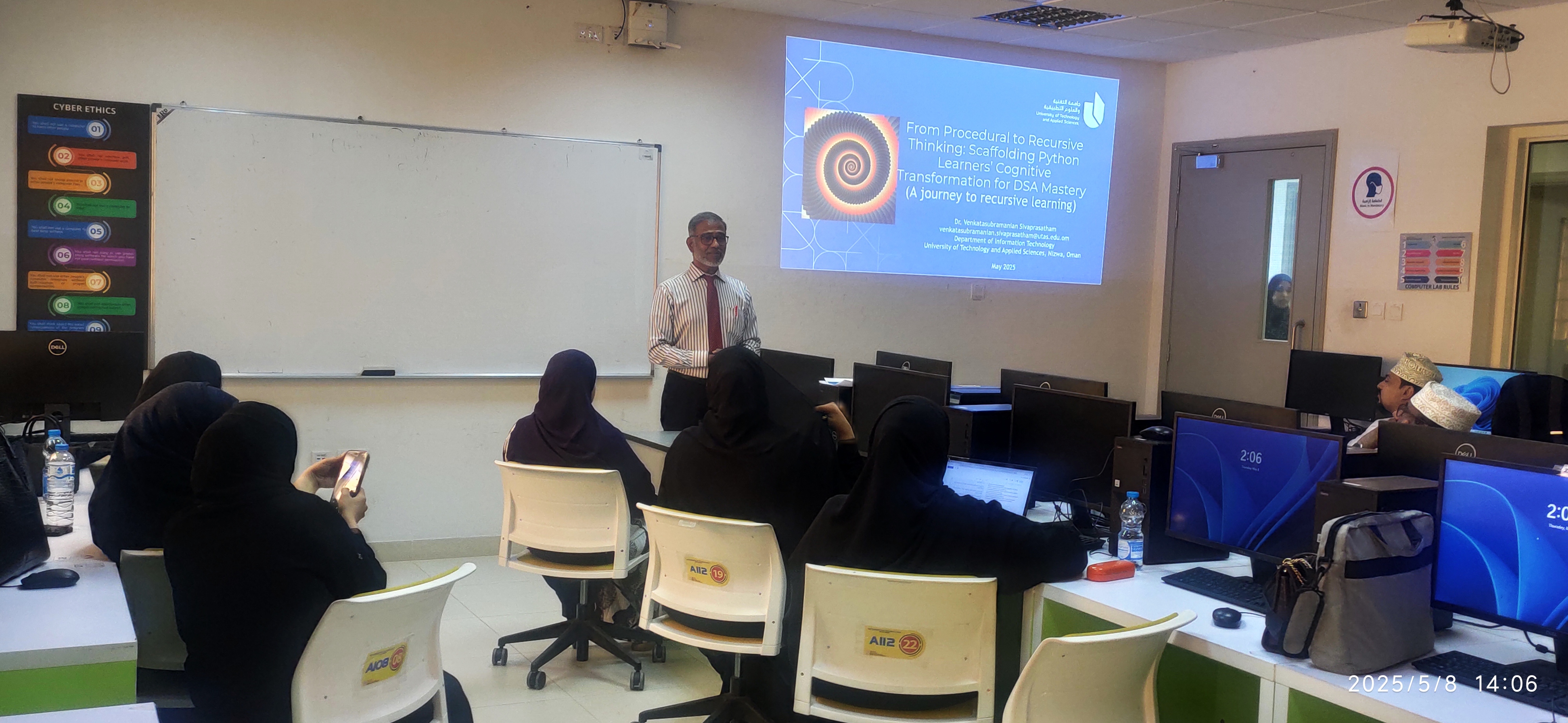IRG Project Presentation: Advancing Recursive Thinking in Python Education

On a bright Thursday afternoon, the Information Technology Department at the University of Technology and Applied Sciences, Nizwa, hosted an engaging Internal Research Grant (IRG) presentation that left attendees buzzing with ideas. Dr. Venkatasubramanian Sivaprasatham, a dedicated faculty member, shared findings from his project, “From Procedural to Recursive Thinking: Scaffolding Python Learners’ Cognitive Transformation for DSA Mastery.” Held on May 8, 2025, from 2:00 PM to 3:00 PM in room A135, the event drew academic staff and M.Sc. students eager to explore innovative ways to teach programming.
A Fresh Approach to Teaching Recursion Dr. Venkatasubramanian’s presentation tackled a common hurdle for beginner programmers: shifting from straightforward, step-by-step thinking to the more complex, nested logic of recursion. This skill is vital for mastering Data Structures and Algorithms (DSA), but it often feels like a leap for novices. Using Python’s clear syntax, the project tested ways to make this transition smoother through guided exercises and a tool called Python Tutor. The study, conducted over 10 weeks with 20 young learners, showed impressive results. Participants improved their recursive skills by 85.6%, with their average scores jumping from 42.35 to 78.60. Even more exciting, 80% of them had “lightbulb moments,” grasping concepts they once found tricky, thanks to visualizations that made abstract ideas concrete.
Why It Matters
This project isn’t just about coding—it’s about transforming how we teach. Dr. Venkatasubramanian’s findings suggest that tools like Python Tutor, combined with carefully designed support, can help students conquer tough concepts. He shared practical tips, like starting with simple problems and gradually reducing guidance to build confidence. These strategies could reshape how we teach DSA, making it more accessible and engaging for students. The presentation also sparked lively discussions. Attendees brainstormed how to scale these methods for larger classes, explored other tools to enhance teaching, and wondered if visualizations could work for other programming concepts. It was a true meeting of minds, with everyone eager to push the boundaries of education.
Looking Ahead While the project was a success, Dr. Venkatasubramanian was candid about its challenges, like ensuring every student used Python Tutor consistently and working with a small group of 20 learners. He proposed exciting next steps, including longer studies to see if these skills stick over time and testing the approach with other programming languages. The event wrapped up with a call for feedback through a quick online form, ensuring the conversation continues. This presentation wasn’t just a showcase of research—it was a springboard for new ideas in teaching and learning at our university.
Writeup by Dr. Venkatasubramanian Sivaprasatham
240